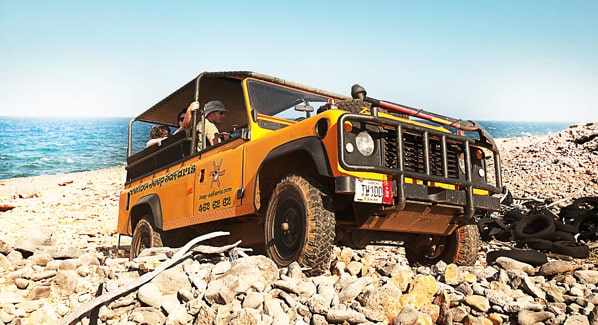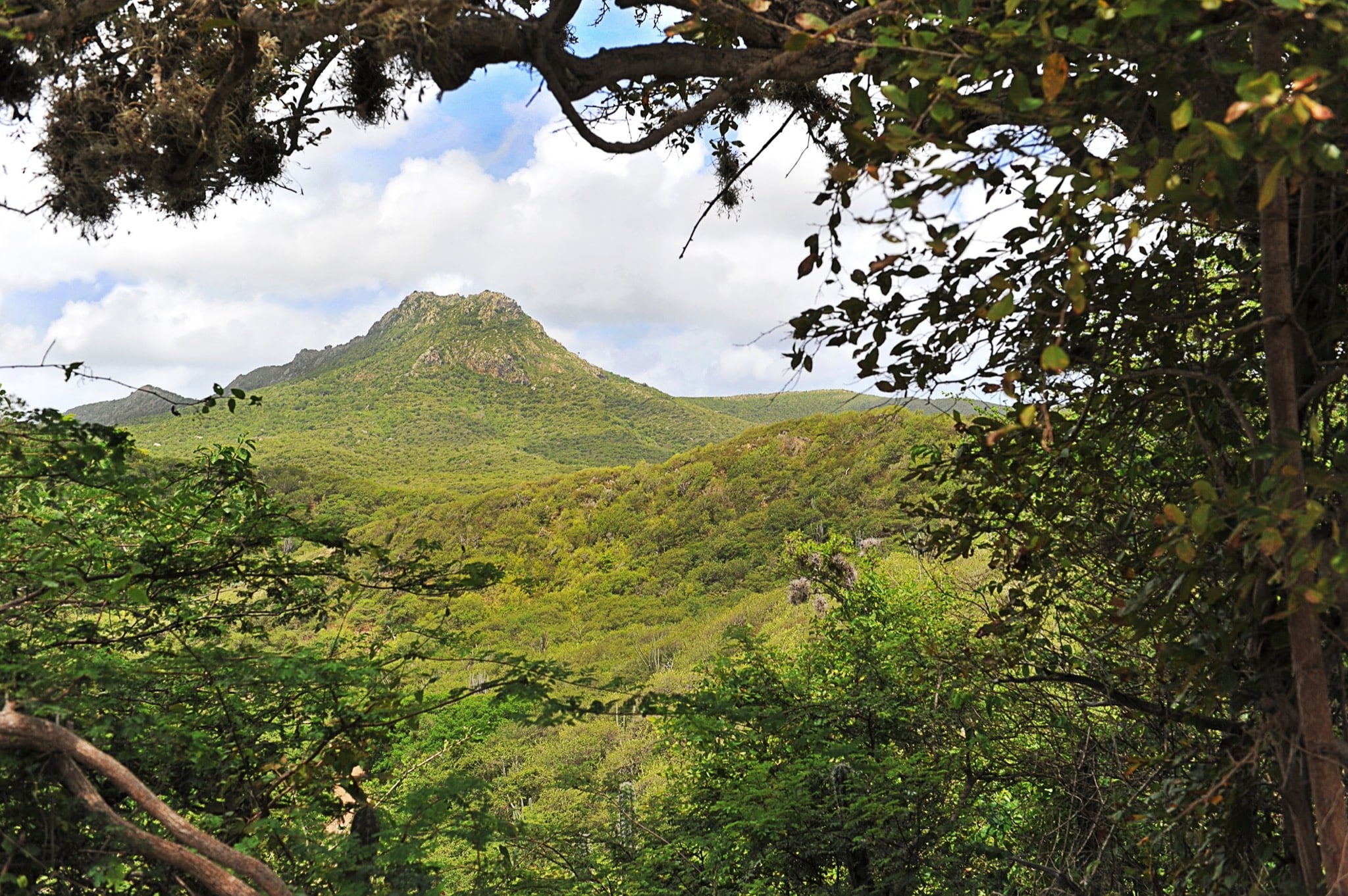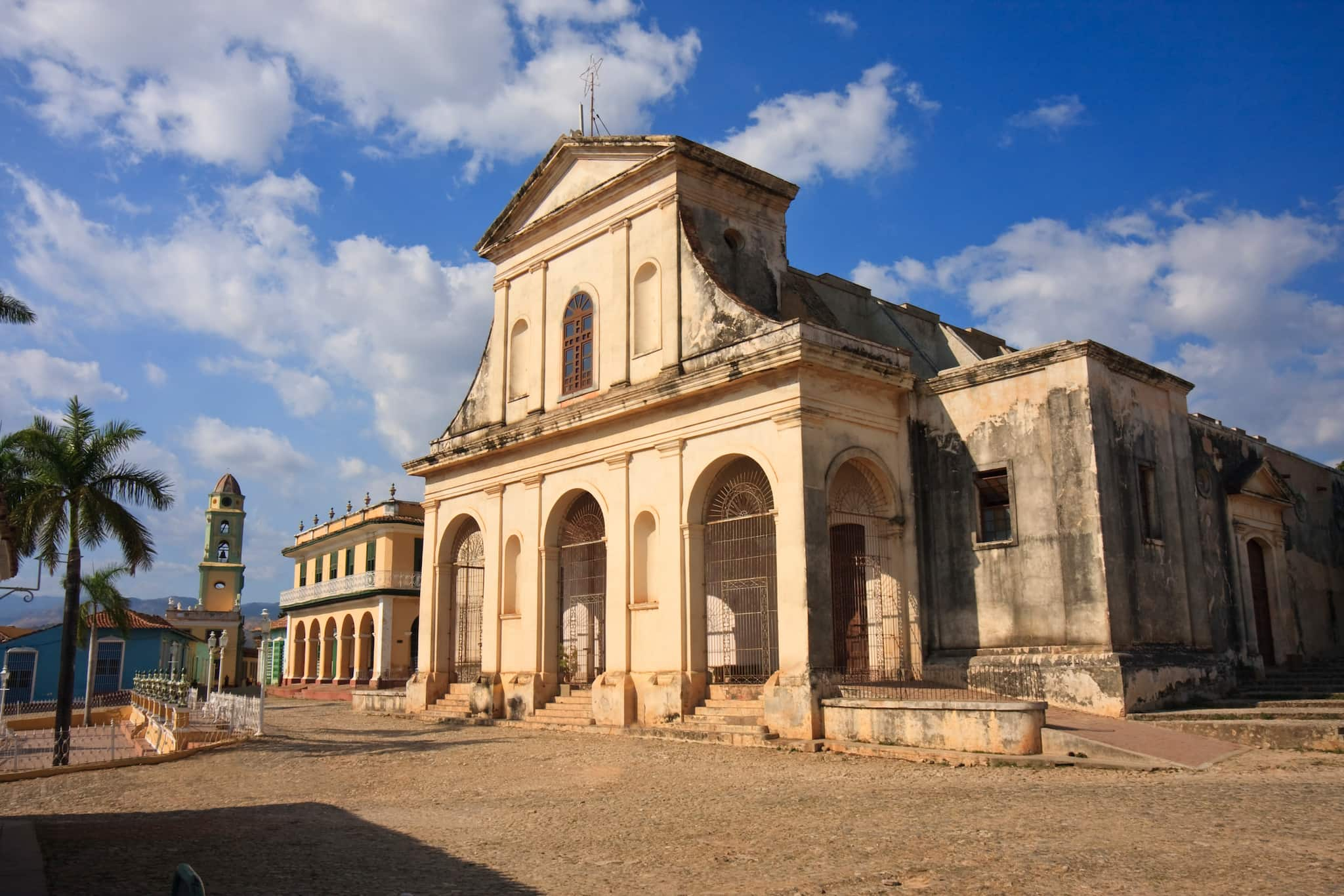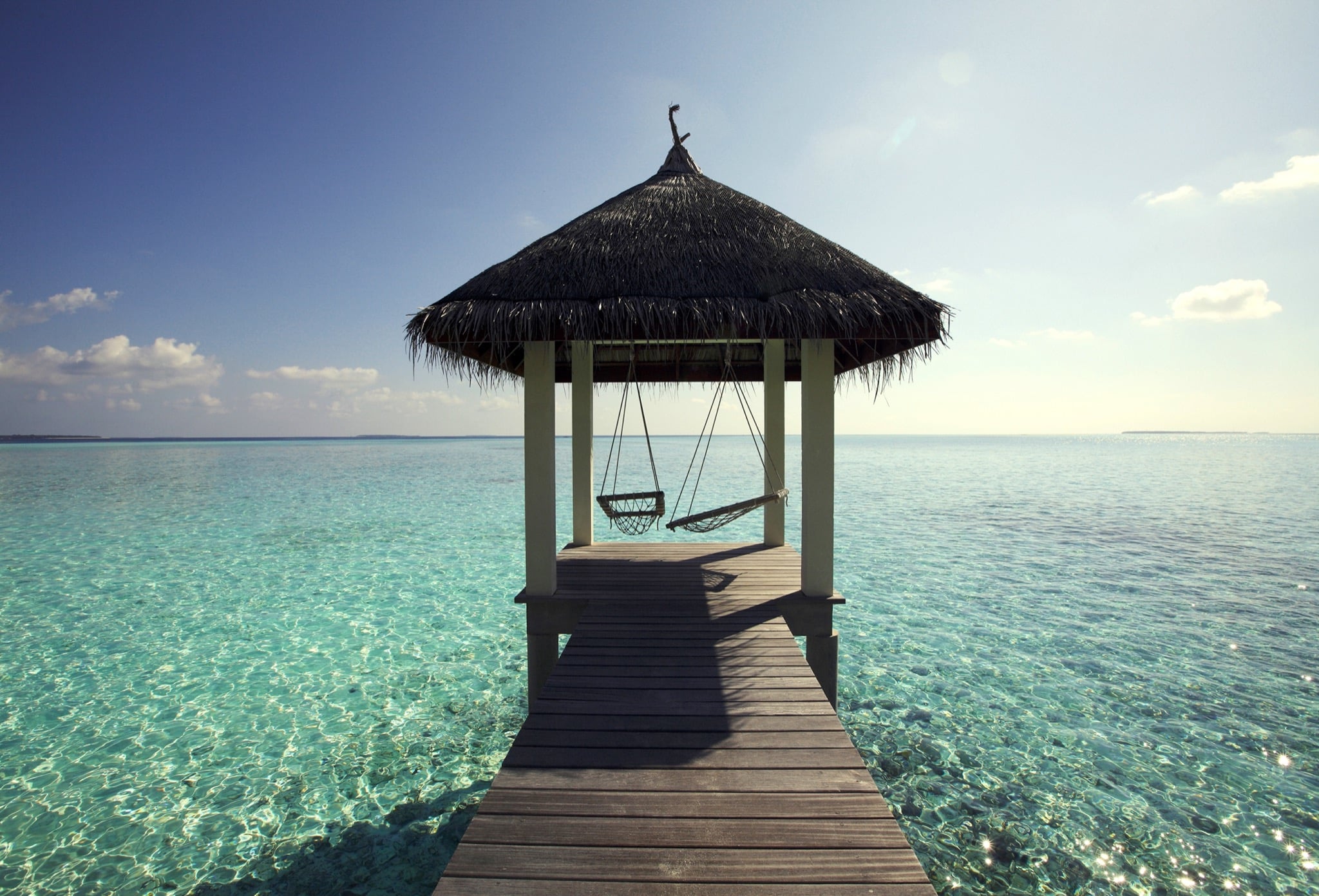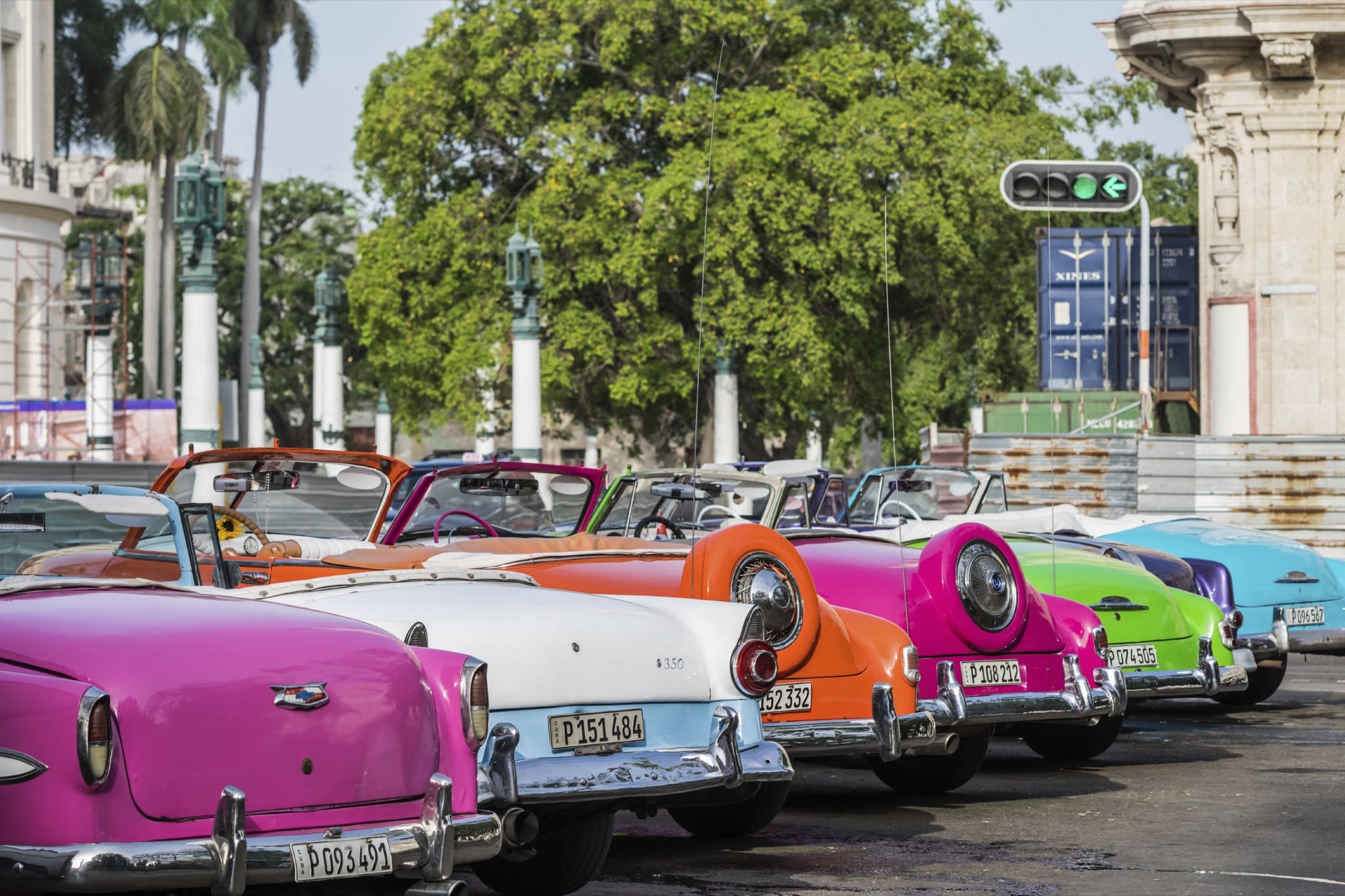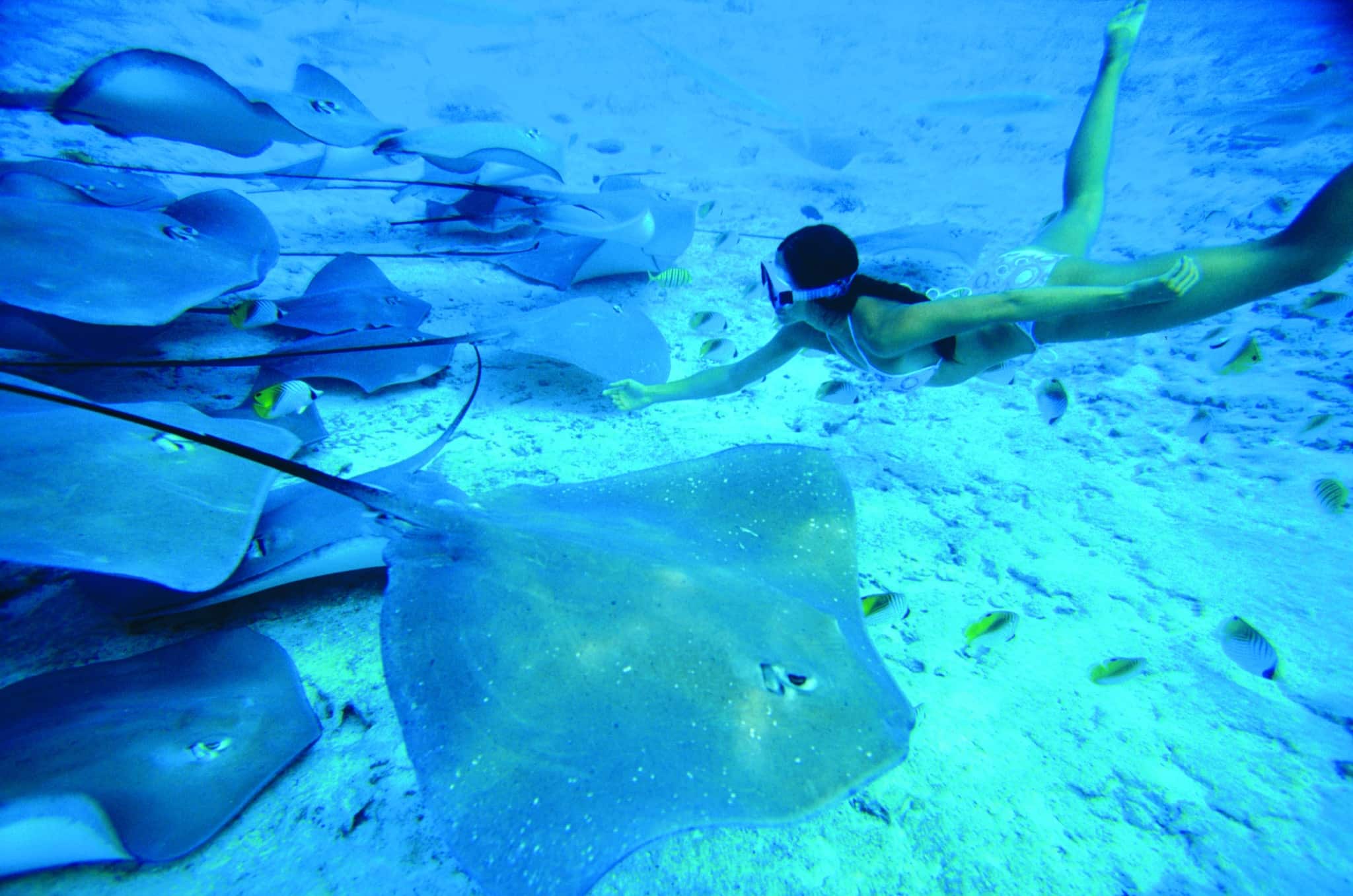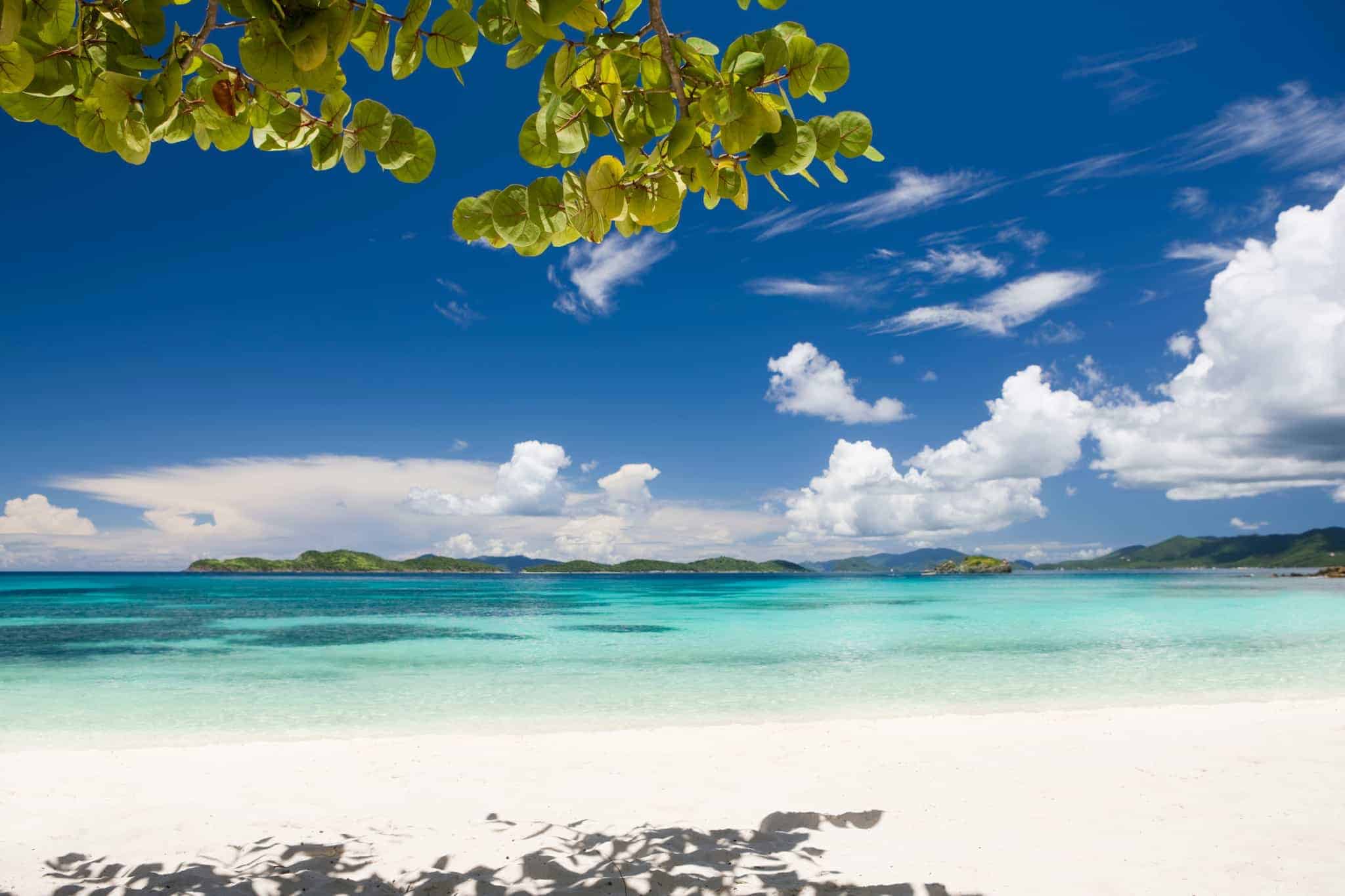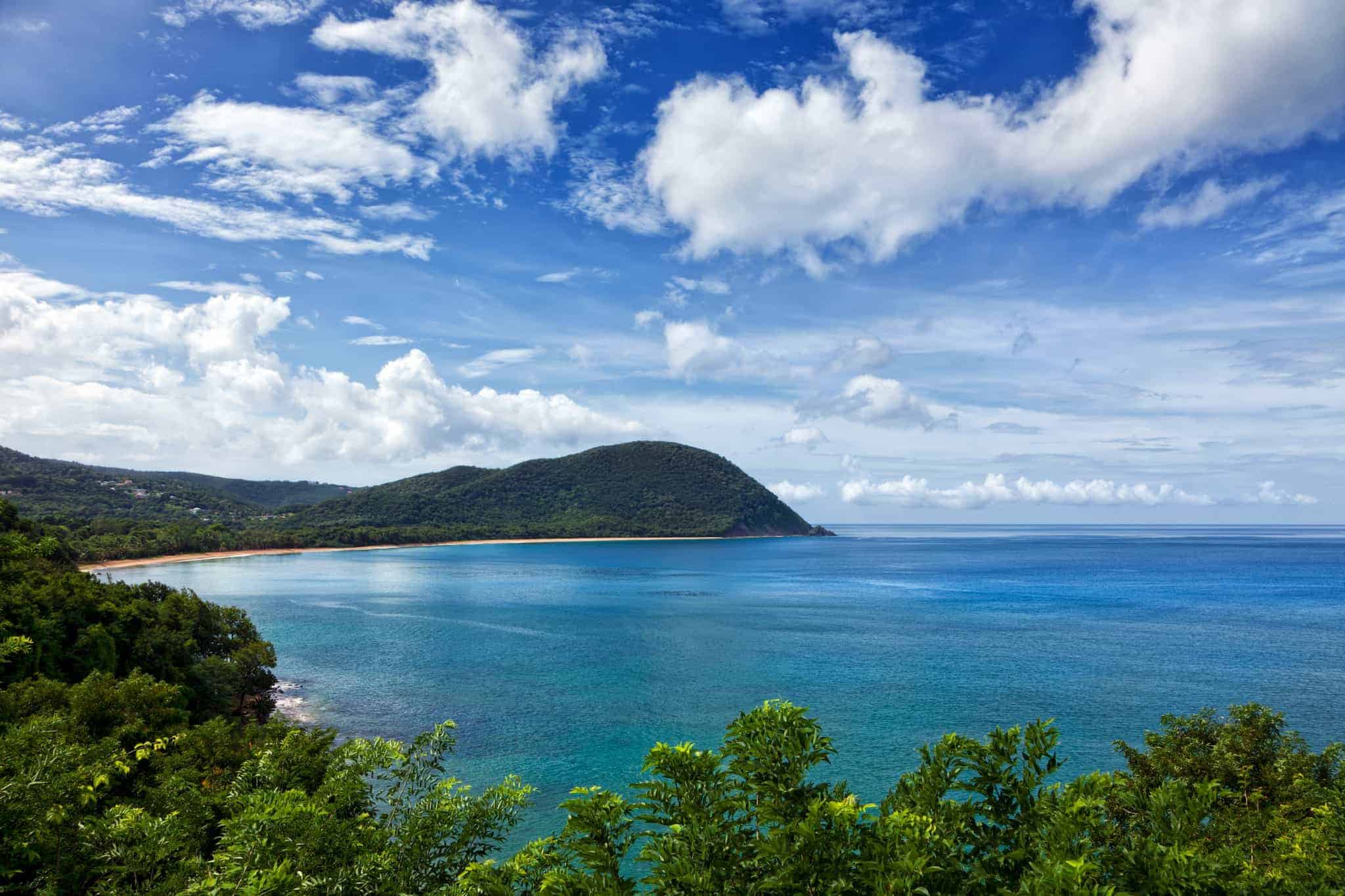Curacao is a vacation destination that delivers not only sun and fun, but also one of the liveliest cultural and culinary scenes in the Caribbean. And there’s even more to discover for those who venture beyond the beach resorts of the southern coast, and the cobblestone streets of downtown Willemstad. Along the island’s elevated spine, the landscape returns to native vegetation, while the rugged northern coast is a land of surf-washed shores and red-rock formations. This wilder side of Curacao can be discovered by foot, bike or off-road vehicle, either on your own, or with an organized tour.
Surf and Slopes
Curacao has two national parks, and both offer unique hiking experiences. Shete Boka National Park lies along the island’s undeveloped northern coast. Here, trails lead to rugged limestone cliffs known as iron shore, where surf crashes against the rocks, and plumes of white water spray upward through blowholes carved by wave action. The coastline is cut by small coves known as bocas. The churning waters are not suitable for swimming, but the setting is impressive, and very photo worthy.
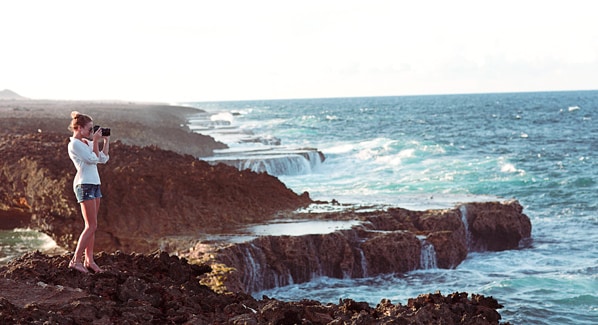
On the island’s northwestern corner, 5,000-acre Christoffel National Park encompasses three former plantations and a historic mining site. Today, this oasis of greenery is home to an abundance of bird life and the island’s population of native white-tailed deer. The hills of the park are laced with eight hiking trails that range from easy routes to a challenging climb to the island’s highest peak of Mount Christoffel. It takes most hikers about an hour to climb to the summit of this 1,227-foot peak. The route begins on a trail with a moderate incline, then involves a bit of scrambling over boulders towards the top. The reward for this effort is panoramic views of the entire island that includes both north and south coast. It is recommended that hikers start their two-hour round trip ascent to Mount Christoffel early to avoid mid-day heat.
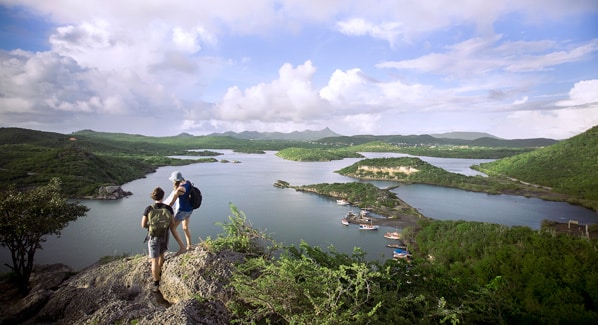
Forts, Forests and Ponds
Curacao’s rugged outback is ideally suited for back road and single track cycling, and there are several companies that rent mountain bikes or provide guided tours. One of the more popular itineraries takes riders to the eastern end of the island for a tour of the Caracas Bay Peninsula. The ride begins in the low hills of the Jan Thiel Nature Reserve, which is home to a number of unique and rare plants and animals. Riders circumnavigate a saltwater lagoon ringed in mangrove forests, where flamingos wade in the shallows. The route continues through former plantations and weaves through thickets of gum trees, brasilwood, dyewood and divi-divi trees. Highlights of the tour include visits to the remains of historic Fort Beekenburg, the restored dwellings of Landhuis Jan Thiel and colonial-era saltpan structures.
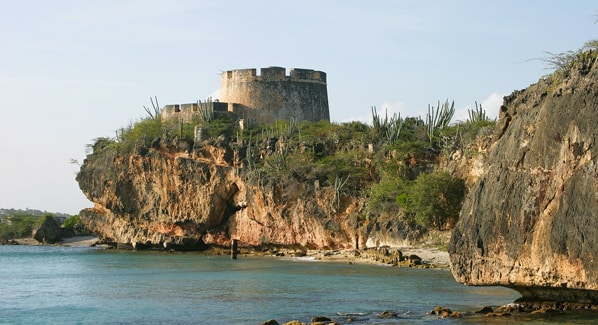
Other memorable rides include the Jan Ottevanger trail, which begins in a green mangrove forest, follows the shores of St. Joris Bay, and ends on the cliffs of the north coast. The Koraal Tabak route passes through salt flats before reaching the greenery of the Malpais Nature Reserve. Along the way, riders can stop at the fishing village of St. Michiel, and visit a natural cave. Plantation Porto Mari offers a groomed mountain bike trail that can be followed up with a visit to the beach, while the hills of Christoffelpark present challenges for those looking to test their climbing abilities and downhill riding skills.
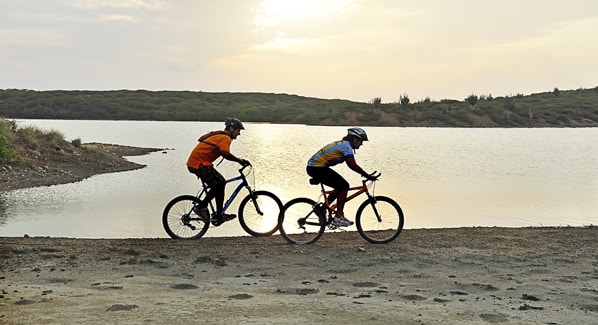
Off road Adventures
If hoofing it or pushing the pedals isn’t your thing, there are a number of tour companies that can set you up for an off-road tour, either aboard a self-drive ATV, or as part of a guided jeep safari. Tours of the island’s eastern end often begin with rides on dirt trails in the gently rolling terrain around St. Joris Bay, where sea turtles are often seen. Riders then head toward to Playa Kanoa Beach on the north shore. Along the way, there are stops at points of interest such as an ostrich farm and a series of caves once inhabited by the Arawak and Caiquetios tribes of indigenous people.
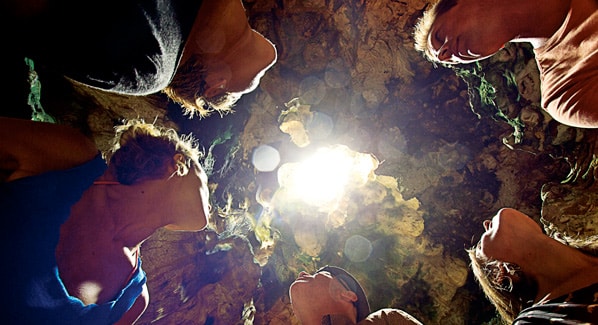
Another option takes riders to Shete Boka National Park, where green, hawksbill, loggerhead, and leatherback sea turtles come to nest on the small, remote beaches that are tucked into hidden coves. Curacao’s most visually exciting off road tour is known as the Orchid Route. This itinerary begins in the island’s central hills, and follows ridgelines toward Christoffel National Park. Riders pass through former plantations, and groves filled with native orchids to arrive at elevated viewpoints, some of which are more than 1,000 feet above the surrounding landscape.
